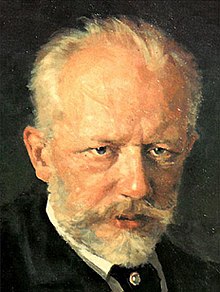|
●★ P. I. T c h a i k o v s k y : The Seasons Op.(37a - 37b) ★●
● Performed by Mikhail Pletnev(Russian Pianist)
● The Seasons (Tchaikovsky)From Wikipedia, the free encyclopedia
The Seasons, Op. 37a[1] (also seen as Op. 37b; Russian: Времена года; published with the French title Les Saisons), is a set of twelve short character pieces for solo piano by the Russian composer Pyotr Ilyich Tchaikovsky. Each piece is the characteristic of a different month of the year in the northern hemisphere. The work is also sometimes heard in orchestral and other arrangements by other hands. Individual excerpts have always been popular – Troika (November) was a favourite encore of Sergei Rachmaninoff, and Barcarolle (June) was enormously popular and appeared in numerous arrangements (for orchestra, violin, cello, clarinet, harmonium, guitar and even mandolin).
● BackgroundThe Seasons was commenced shortly after the premiere of Tchaikovsky's First Piano Concerto, and continued while he was completing his first ballet, Swan Lake.[2] In 1875, Nikolay Matveyevich Bernard, the editor of the St. Petersburg music magazine Nouvellist, commissioned Tchaikovsky to write 12 short piano pieces, one for each month of the year. Bernard suggested a subtitle for each month's piece. Tchaikovsky accepted the commission and all of Bernard's subtitles, and in the December 1875 edition of the magazine, readers were promised a new Tchaikovsky piece each month throughout 1876. The January and February pieces were written in late 1875 and sent to Bernard in December, with a request for some feedback as to whether they were suitable, and if not, Tchaikovsky would rewrite February and ensure the remainder were in the style Bernard was after. March, April and May appear to have been composed separately; however the remaining seven pieces were all composed at the same time and written in the same copybook, and evidence suggests they were written between 22 April and 27 May. The orchestration of Swan Lake was finished by 22 April, leaving the composer free to focus on other music; and he left for abroad at the end of May. This seems to put the lie to Nikolay Kashkin's published version of events, which was that each month the composer would sit down to write a single piece, but only after being reminded to do so by his valet.[1] The epigraphs that appeared on publication of the pieces were chosen by Bernard, not by Tchaikovsky. In 1886 the publisher P. Jurgenson acquired the rights to The Seasons and the piece has been reprinted many times.[1] Tchaikovsky did not devote his most serious compositional efforts to these pieces; they were composed to order, and they were a way of supplementing his income. He saw the writing of music to a commission as just as valid as writing music from his own inner inspiration, however for the former he needed a definite plot or text, a time limit, and the promise of payment at the end. Most of the pieces were in simple ABA form, but each contains a minor melodic masterpiece. The 12 pieces with their subtitles are:
● Orchestral arrangementsA number of musicians have orchestrated Tchaikovsky's pieces. Aleksandr Gauk arranged The Seasons for symphony orchestra in 1942. Morton Gould retained the piano part for many of the pieces and orchestrated the work throughout, recording it with himself at the piano in 1951 for American Columbia. In 1965, Kurt-Heinz Stolze orchestrated a number of the pieces as part of the music for John Cranko's ballet Onegin. More recent orchestral versions have been produced by David Matthews (for symphony orchestra), Peter Breiner (for solo violin and symphony orchestra), and Georgii Cherkin (for solo piano and symphony orchestra | |||||||||||||||||||
'Lecture Concert' 카테고리의 다른 글
| Edgard Varèse - Poeme Electronique (0) | 2015.07.05 |
|---|---|
| 라프마니노프 : 피아노 소나타 2번 (0) | 2015.07.05 |
| 쇼팽 : 연습곡 Op.25 - 폴리니 (0) | 2015.07.05 |
| 슈만 : 시인의 사랑 Op.48 (0) | 2015.07.05 |
| 슈만(리스트) : 호도나무 - 조르쥬 볼레(피아노) (0) | 2015.07.05 |

